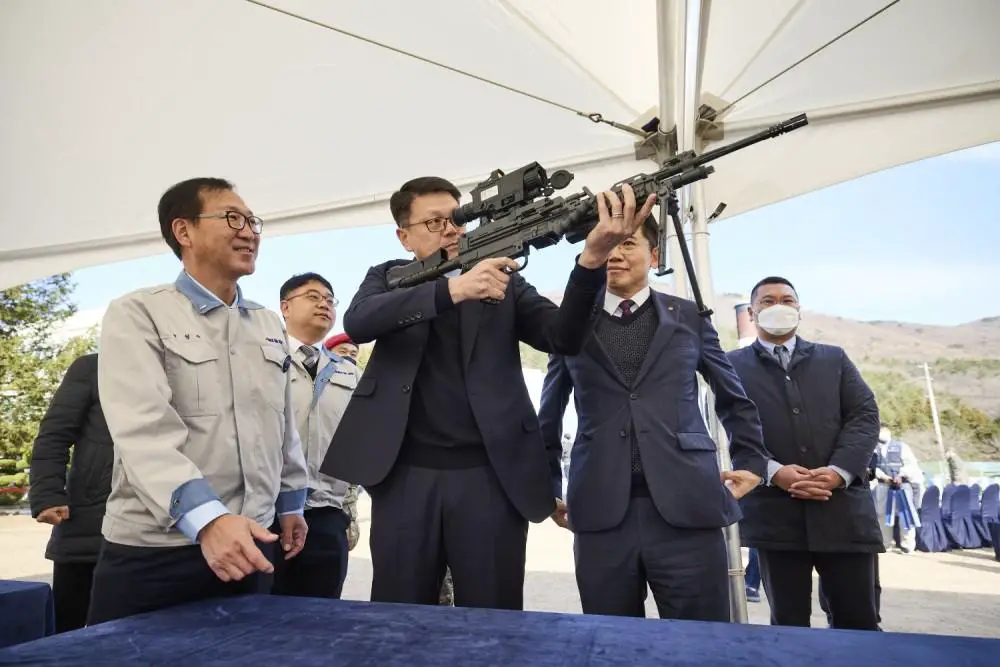South Korean firearms company SNT Motiv (previously Daewoo Precision Industries/S&T Daewoo) has delivered the first batch of K15 light machine guns (LMGs) to the Republic of Korea Army (RoKA). The new light machine guns are integrated with day and night sighting devices, which were not available in the K3s. In addition, accuracy, reliability, and operating convenience of K15 light machine guns have been improved. Picatinny rails are installed to use various accessories. The butt and bipod can be freely adjusted according to the physique of the soldiers. The K15 light machine guns will replace the ageing fleet of K3 light machine guns with the Republic of Korea Army. The K3 has been the backbone of ROK infantry squads’ firepower (one K3 per squad).
The K3 is a light machine gun resembling the FN Minimi and uses a standard 5.56×45mm NATO cartridge. Its greatest advantage is that it is lighter than the M60 and can interchange cartridges with both the K1A and K2. By 2015, ROK forces were looking to obtain a new LMG, as the K3 was suffering from age and reliability issues. The problem is, during the 1980s, the Minimi itself wasn’t mature enough; and the K3 wasn’t a licensed copy of the Minimi. It was very close to the Minimi, but it’s highly doubtful FN actually supplied technical details to Daewoo Precision. In late 2018, the S&T Motiv “Next-Generation LMG” was standardized as the K15, a heavily upgraded version of the K3 planned for fielding to the ROK Army by 2020.

The name K15 means it is the next Korean-made and standardized small arm after K-14, a bolt-action sniper rifle. It has an adjustable buttstock and redesigned pistol grip/trigger group component for improved ergonomics, and internal parts are reconfigured and manufactured with closer tolerances for better reliability. Unlike the K3, it uses a push button to hold and release the barrel with three upper positioning lugs to ensure the barrel sits on a correct position when reattached. The feed cover and handguard have rails integrally attached, rather than needing an adapter to have them installed like the K3. It also offers the Hanwha Systems PAS-18K thermal weapon sight in conjunction with the K15.
Each leg of the bipod operates independently to make for a more sturdy firing platform and the front sight is collapsible. The K15 is still fed from a 200-round plastic container and also can accept a STANAG magazine in emergency situations. Although the new design is more reliable, it is heavier at 7.16 kg (15.8 lb) without the FCS and 8.4 kg (19 lb) with the FCS. The only drawback to the K15 compared to the K3 is its weight. While the K3 weighs slightly less than 7kg, K15 is close to Minimi Mk.3’s weight. Even without its bipod, the K15 weighs 7.16kg, already heavier than the K3. And with its “Full Set” configuration it weighs 8.4kg. But compared with the Minimi Mk.3, which is already close to 8kg without optics, it seems tolerable.















